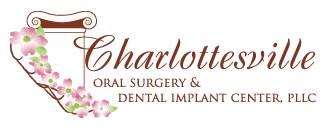10 Mar When Do You Need Orthognathic Surgery?
 If your dentist has recommended corrective jaw surgery, you may have many questions about why and how to prepare. We understand that invasive procedures like this can make our patients anxious, but we can help. In today’s blog, your Charlottesville VA, oral surgeons are here to answer a few questions you may have about the procedure.
If your dentist has recommended corrective jaw surgery, you may have many questions about why and how to prepare. We understand that invasive procedures like this can make our patients anxious, but we can help. In today’s blog, your Charlottesville VA, oral surgeons are here to answer a few questions you may have about the procedure.
Common Reasons For The Procedure
Orthognathic surgery (corrective jaw surgery) may be necessary if your jaw joints are misaligned. Your dentist may recommend this procedure to treat cross, under, over, or upper bites. Bad bites can happen as the result of your joints growing at different rates or from facial trauma. You could also use this corrective procedure to treat TMJ dysfunction and difficulties with breathing, talking, or chewing. In many cases, TMJ dysfunction can be treated with non-invasive treatments like physical therapy and oral appliances. However, if these remedies do not bring relief or you have limited jaw movement due to TMD, more invasive procedures like this may be required. Orthognathic treatments often coincide with orthodontic treatments, so our team will work with your orthodontic team to coordinate the necessary procedures and renew your smile.
The Treatment And Healing Process
Before starting the procedure, you will first need a consultation with our team. During this visit, we will thoroughly examine your jaw and smile, take X-rays, and review the procedure with you. On the day of your procedure, remember to wear something comfortable and have a friend or family member available to drive you to and from the appointment. Your procedure may take several hours, and our team will give you specific pre- and post-operative instructions. When it is time for surgery, we will administer the anesthesia to ensure you are comfortable throughout the entire procedure. After your treatment, be sure to follow your oral surgeon’s post-op instructions to avoid infections and smooth healing. The healing time can take around six weeks or more in most cases.
What Can Happen If You Put Off Treatment
Are there non-invasive treatments available instead of corrective jaw surgery? For some patients, there can be. Patients with less severe TMJ dysfunction may be able to manage their symptoms with the use of an oral appliance. Orthodontic treatment may also help bring some relief to patients with TMJ. However, if you experience limited mobility or chronic pain due to your condition, corrective treatment may be the best solution to improve your symptoms and protect your long-term oral health.
Schedule An Appointment With Our Team
When you need jaw treatment, our team is here to help. To learn more or schedule an appointment, please call your Charlottesville VA, oral surgery team today at (434) 282-2275.
